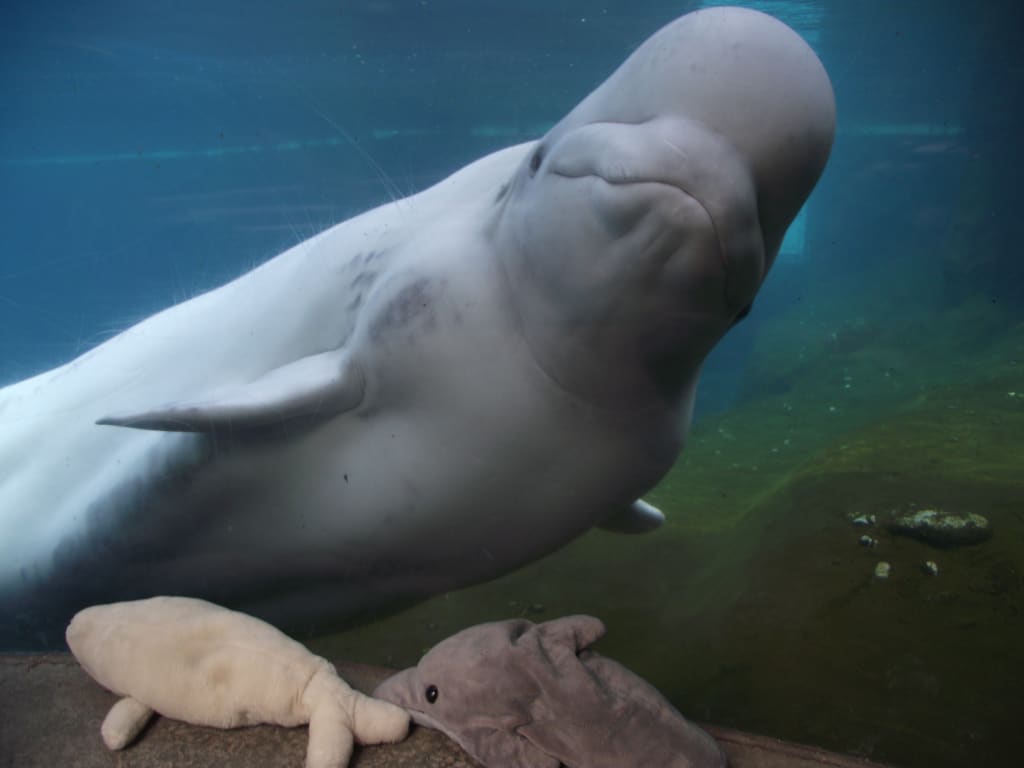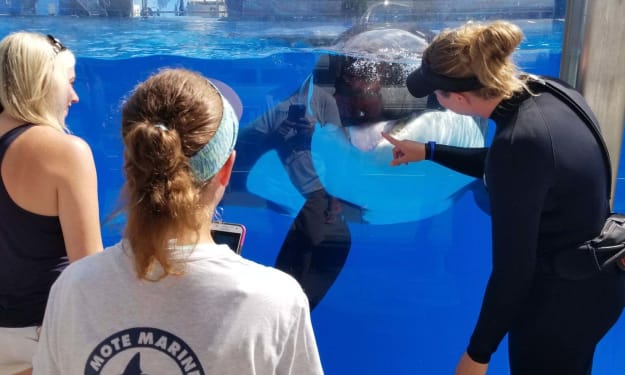Dear Canada, a Ban on Cetaceans in Human Care Won't Save Marine Mammals
Canada's Senate has recently passed a bill that would ban any Canadian zoological facility from housing cetaceans in their care.

Recently, Canada's Senate has passed a bill dubbed as "Bill S-203," which would outlaw the keeping of cetaceans in human care for almost any given purpose. While Marineland Canada and Vancouver Aquarium, the two Canadian zoological facilities that currently house cetaceans would be exempted from this ban, the harm it would have on zoos and aquariums that currently house and care for cetaceans and other marine mammals, as well as efforts to save wild cetacean populations in Canada, is unimaginable in so many ways. However, since the Senate has passed this bill, its next step would be for it to pass through House before being signed by Canada's governor general.
I have a friend who not only lives in Canada, but she also works at an aquarium in the Toronto area, too. When news first came out about the bill being passed by the Senate, she reflected on how some of her co-workers reacted to the news, which I found to be disturbing on so many levels, considering that they all work at a facility that is certified by the Association of Zoos and Aquariums. As it turns out, many of my friend's co-workers were celebrating the news while she, on the other hand, was very upset about it. That's a true sign that Canada's zoo community seems to be divided on the issue when it comes to marine mammals in human care. Yet, the real concern is not just a divided community, but more of how the ban would impact the two current cetacean facilities in Canada.
Marineland Canada in Niagara Falls is a controversial marine mammal facility that is known for breeding beluga whales in its care. If Bill S-203 gets passed, it would be illegal for this facility to not only breed its animals but also, be able to move them to another facility if it's necessary. For Marineland, it would be nothing more than a nightmare for the animal care staff there since they are the ones who care for these animals and ensure their well-being. Keep in mind that cetaceans like beluga whales are sexual animals and they will mate for pleasure, which would mean that the park would have to be forced to separate the males from the females, would possibly result in the animals becoming sexually frustrated, which means likely chances of accidents happening. While birth control for cetaceans is ideal, it's not always one hundred percent effective.
Then, there is Vancouver Aquarium in British Columbia which currently houses animals that were all rescued and rehabilitated, but have been deemed "non-releasable" by the Canadian government for different reasons. They currently house a Pacific White-Sided dolphin who was rescued from an entanglement situation but cannot be returned to the wild, due to the nature of her injuries. Let's say that Bill S-203 gets signed into law, Vancouver would never be able to rehabilitate sick, injured, or orphaned cetaceans that are in need of being rescued. This is considering that Vancouver Aquarium is currently, the only facility in Canada that has an active marine mammal hospital that is specialized in the rehabilitation of cetaceans and if a cetacean were in strand anywhere in British Colombia, under law, the aquarium would be forced to euthanize it instead of making the effort to help it recover. In addition, Vancouver Aquarium also conducts a lot of research on the cetaceans that it rehabilitates as well. For example, Chester, a false killer whale who was rescued off Tofino, British Columbia, taught the aquarium's staff a lot about a species that is normally found in warm, tropical waters. Although he died last winter, he did help researchers understand how the physiology of the species can affect their overall health on a long run and opened a brand new door to learning more about them. Bill S-203 would prevent such knowledge from being collected through rehabilitation efforts.
As someone who has been working with animals since the age of ten, it just saddens me to see that there is very little to no community within Canada that is aimed at sharing accurate and positive information about the work that zoos and aquariums do to raise awareness on the environmental issues that are affecting wild marine mammal populations worldwide through research and education. If anything, so much of it is placed on placing agenda that is aimed at "phasing" out any zoological facility that houses cetaceans as being this "environmental" cause when it's actually just another animal rights agenda that does a lot more harm to animals than good. Canada's zoo community needs to stand up, and speak up for one another, the good the zoos and aquariums do for wildlife, and the importance of having cetaceans and other animals in human care, or else, this bill could end up becoming Canada's newest law.
About the Creator
Jenna Deedy
Zoo and Aquarium Professional, Educator, Cosplayer, Writer and B.A. in Psychology whose got a lot to share when it comes to animals, zoos, aquariums, conservation, and more.
Instagram: @jennacostadeedy






Comments
There are no comments for this story
Be the first to respond and start the conversation.